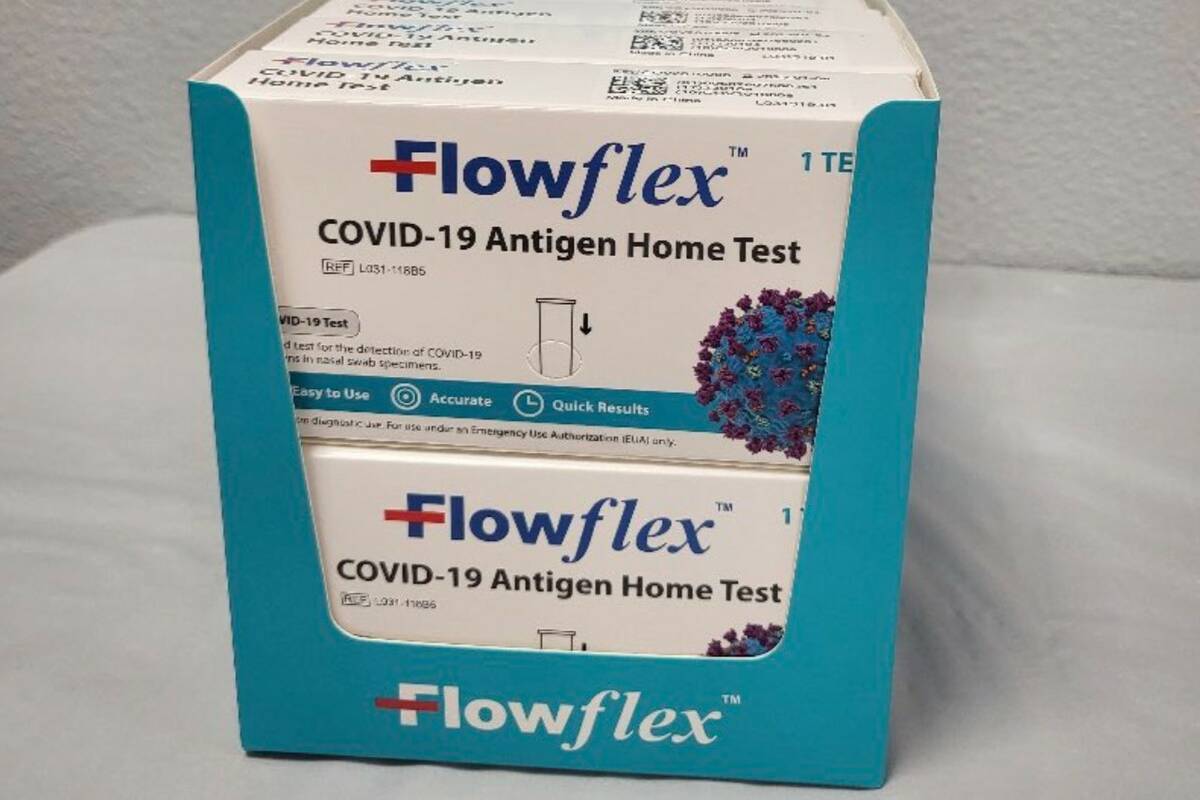Nevada starts serving free rapid COVID-19 tests

The first of hundreds of thousands of free COVID-19 rapid test kits ordered by the state of Nevada are now available at several sites in Las Vegas as well as locations in rural and Northern Nevada.
Gov. Steve Sisolak used federal funding to place an initial order for 600,000 Flowflex at-home test kits, the governor’s office said Monday. In Clark County, the rapid antigen tests are now available at the offices of nonprofit Aid for AIDS Nevada, Planned Parenthood of the Rocky Mountains, and the state Division of Welfare and Supportive Services.
The Nevada Health Response website – nvhealthresponse.nv.gov – will list additional sites as they become available.
“At-home test kits are one strategy the State is using to make testing more convenient and accessible to Nevadans,” a news release from the governor’s office stated. The initiative provides a “convenient way for Nevadans to pick up at-home tests from community partners and have them on hand if they develop symptoms and need quick access to a COVID-19 test.”
The state’s program is one of several government rapid-test initiatives launched since late December, when the demand for COVID-19 testing skyrocketed along with the number of new cases. The tests are arriving as the omicron wave of COVID-19 appears to be receding, and with it, testing demand.
President Joe Biden faced criticism over the holiday season for a shortage of at-home rapid tests as Americans traveled to see family amid the surge in cases from the more transmissible omicron variant.
Now, under a federal program, four rapid tests per household can be ordered online at covidtests.gov.
As of Jan. 15, the Biden administration began requiring insurance companies to cover the cost of eight at-home tests per individual per month. Consumers can obtain tests for free using their insurance at time of purchase or through reimbursement, depending on their insurer’s policy. The Nevada Health Response website encourages residents to find out from their insurer if it provides direct coverage of the over-the-counter tests.
The home rapid tests, which can be purchased online and at drug stores, have the advantage of giving results in minutes rather than days, the amount of time it typically takes to get back lab results on a PCR test.
But health authorities caution that the rapid tests are not as accurate as PCR tests at detecting an infection. When a rapid test is taken early on in an infection, before the virus has widely replicated, it may return a false negative. Authorities recommend that people who have been exposed to the virus take multiple tests over a few days, including three to five days after a possible exposure.
However, experts say that the rapid tests are very good at identifying people with high viral loads, who are those most likely to infect others. For this reason, some recommend taking a test immediately before visiting an elderly person, for example, or someone with a compromised immune system.
Contact Mary Hynes at mhynes@reviewjournal.com or 702-383-0336. Follow @MaryHynes1 on Twitter. The Associated Press contributed to this report.